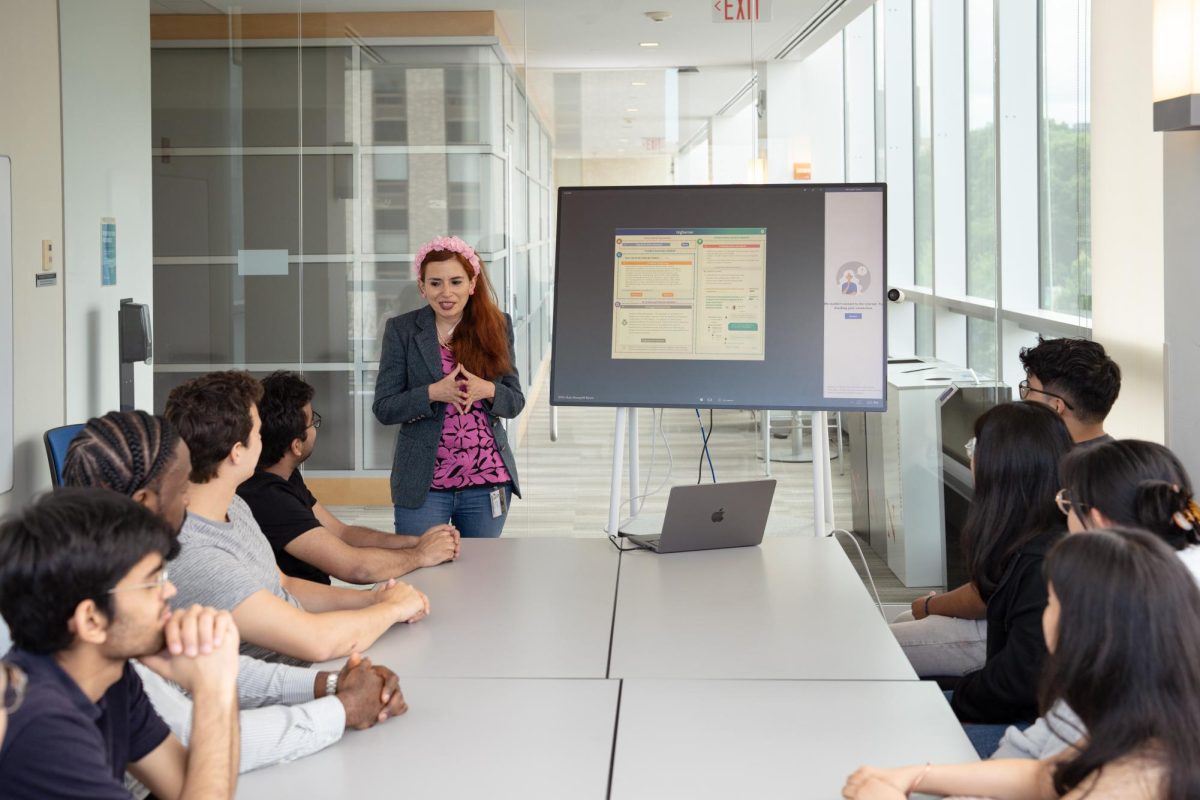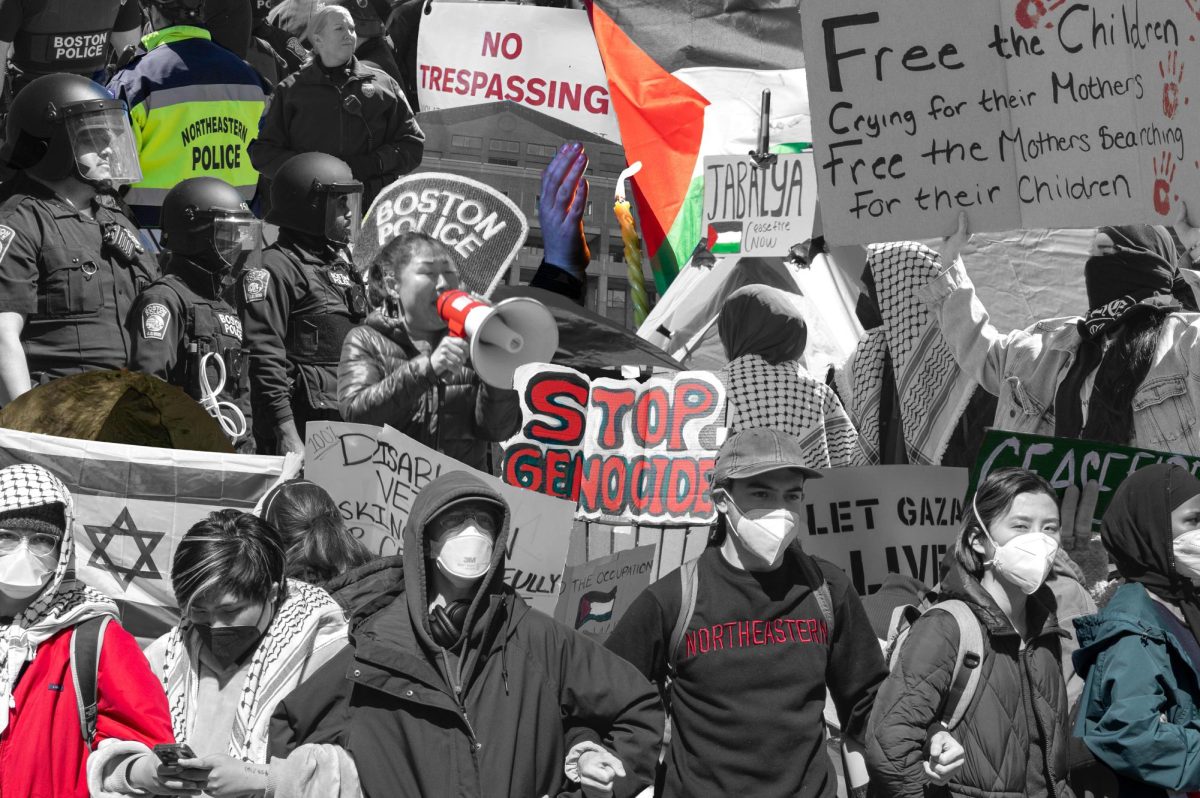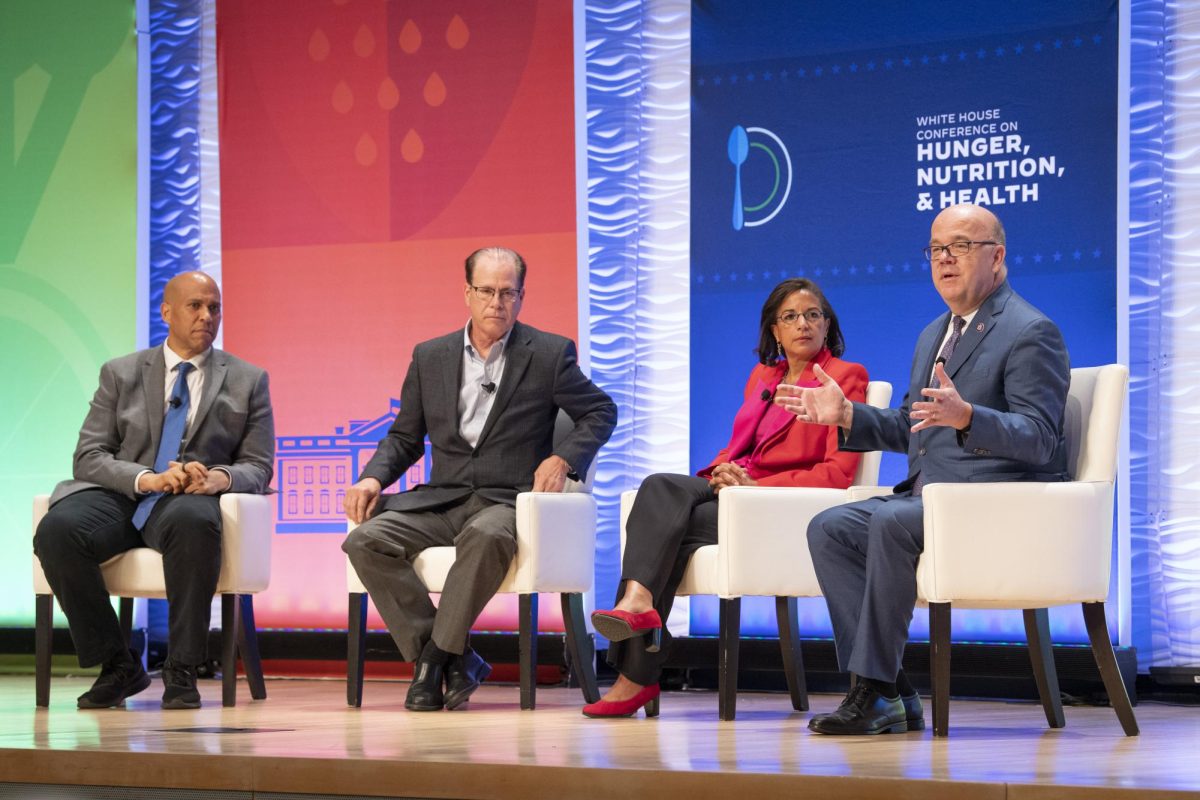By Justin Arnold
On Thursday October 4 a group of young Israeli citizens spoke at Northeastern, sharing their personal stories of life in Israel and how they are affected by the ongoing war.
The group was here as part of a project called “Israel at Heart.” The project is sponsored by an American businessman named Joey Low, who started it after living in Israel for a few years. He felt that Israel was being unfairly portrayed in the media and he wanted to change that image.
The group that spoke last Thursday was the third group of young people that Low has brought to America from Israel. The Students for Israel at Northeastern brought the group to campus.
The group featured three speakers: Danit Kalderon, Dahlia Shaham, and Ariel Haleri. The speakers talked about themselves, their lives and the impact of war on their community. They told stories of how suicide bombings have affected them and the people they know. Kalderon shared a story of a woman she knew who lost her infant child and her mother in the same bombing, and how devastating this incident was for her. Kalderon said she wanted to tell the group about the Israel “before and after the bombings, not just what people see on the news.”
A major point stressed by all three of the speaker was their main goal is to achieve peace in Israel. They all want to see a home state for the Palestinian people.
Haleri said, “I support doing what it takes to achieve peace, even if the concessions are painful.”
Shaham spoke about her friendship with Palestinian students, which had developed a few years ago. Once the resurgence in violence commenced two years ago, their relationship became strained, as their opinions were very different regarding the situations that critically affected their communities.
The three speakers emphasized that they wanted to change what they perceive to be a negative and biased view of Israel presented by the international media. Haleri gave an example of the events in Jenin during April of this year. The Israeli army invaded Jenin in order to root out terrorists and weapons after a spate of bombings. Haleri said that the army used remarkable restraint in this operation by “not dropping bombs but instead risking soldier’s lives with pinpoint strikes.” The international media called these Israeli operations a massacre. This was what inspired him to take part in the program.
All three of the speakers have completed mandatory time in the Israeli military. In Israel, all women must complete two years of service, while men must complete three. Haleri shared with the group a personal story of his experience in the military.
One night, he and some other troops had to go into a Palestinian household to arrest a man who had taken part in actions against Israel. While making an arrest, he saw the young son of this man staring at the soldiers who came into his house and took away his father.
Haleri said, “I knew absolutely that this man had to be arrested, but at the same time I knew that this four year old kid would never understand. He will grow up to hate Israeli soldiers. This shows what is inherently problematic with the situation.”
The speakers from “Israel at Heart” attempted to demonstrate that they are very similar to Americans. They study, they work and they go out with their friends. They love their country, but they have challenges to face that require help. They, along with forty-five others from their country, are sharing their stories throughout the United States in an attempt to strengthen the bond between the U.S. and Israel.
More information on “Israel at Heart” is available at www.israelatheart.com.








